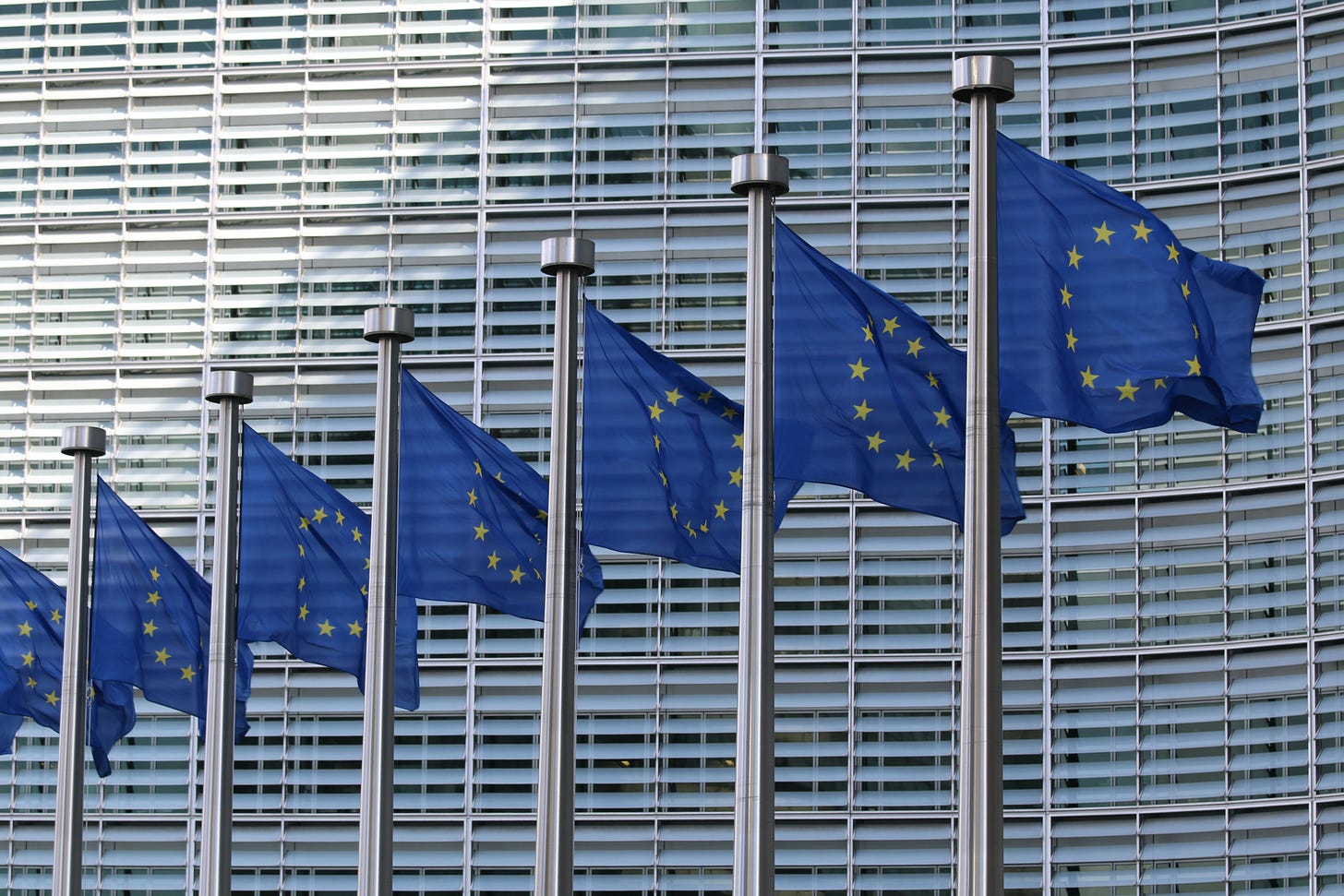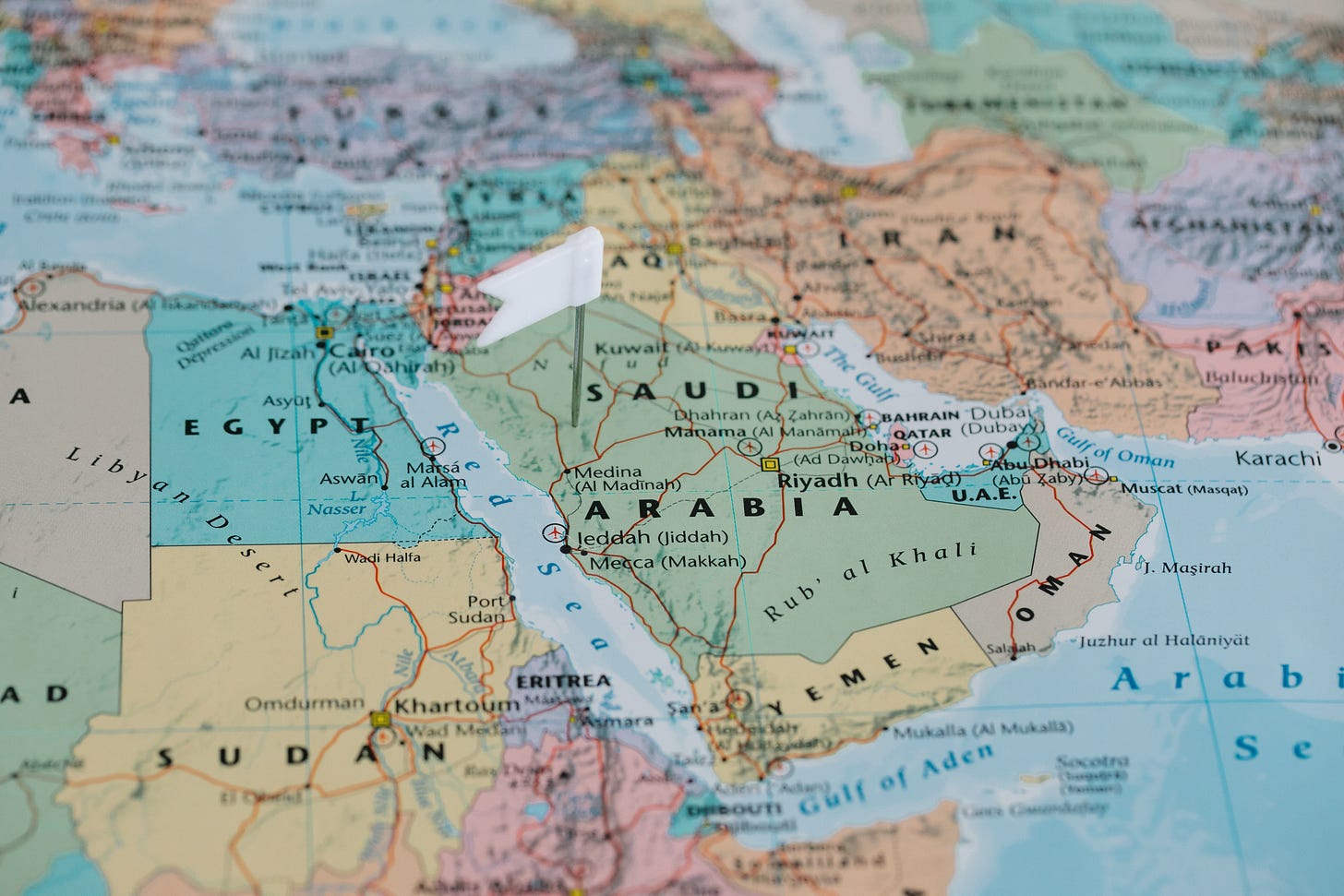Macron's divisive comments on Taiwan, Gulf sovereign wealth funds get active and Spotify juggles AI tools
April 2023
Hello and welcome!👋
“You can cage the singer but not the song,” once remarked performer and activist Harry Belafonte, who died at the age of 96 on 25 April. His words continue to resonate decades later.
Remember to hit the like button if you enjoy Deep Dive, and feel free to share the newsletter with your friends.
DETERMINING EUROPE’S CHINA POLICY
A diplomatic faux pas or an honest appraisal? Emmanuel Macron stirred controversy after his trip to Beijing when he said Europe should avoid being “followers” of Washington’s agenda on Taiwan.
In an interview with journalists, the French president claimed the continent must resist getting “caught up in crises that are not ours”. Macron apparently discussed Ukraine and Taiwan in detail with Xi Jinping. Separately, the French leader reiterated his desire for European strategic autonomy between the great powers.
Critics accuse Macron of not reading the room (a complaint he’s heard on numerous occasions). But many analysts and civil servants agree that the EU is divided on how to approach China.
Germany tends to favour economic cooperation to bolster its industrial giants. Yet European Commission chief, and former German defence minister, Ursula von der Leyen wants “a clear-eyed assessment” to rebalance the bloc’s China relationship. Then there’s the matter of Lithuania and the Czech Republic pursuing closer ties with Taiwan.
The Global Times, a Chinese tabloid, has published several articles on Europe in the wake of Macron’s April trip. One reporter said the EU could either pick the path toward development or choose confrontation.
FINANCIAL AND POLITICAL CLOUT
The majority of the world’s large sovereign funds are propelled by petrodollars. With higher oil and gas prices generating bumper profits for energy exporters, these state-owned vehicles have even more capital to deploy - and with that cash comes influence.
The Gulf Arab investment funds, in particular, are emerging as formidable forces on the global scene. Consider the Abu Dhabi Investment Authority (ADIA), which manages around US$708 billion of assets. Or Saudi Arabia’s US$600+ billion Public Investment Fund (PIF). Not only do they have deep pockets but the organisations are also run by presiding royals or their family members.
While the Gulf monarchs are used to buying stakes in multinationals and supporting start-ups, the current buzz around the Arabian Peninsula is palpable. In a volatile environment where financing is hard to come by, the region has become a hive of activity.
Top Silicon Valley players are reportedly arranging meetings in Saudi Arabia, Qatar and the UAE. Business conferences are packed with delegates from Europe, Russia, China and the US. And Ray Dalio’s family office is setting up a local branch in Abu Dhabi.
What’s different, though, is the strategy. Dealmakers say the Gulf sovereign wealth funds are getting savvier with their money and want to diversify away from hydrocarbons. For instance, the Qatar Investment Authority is looking for opportunities in football, finance and tech. Notably, Saudi’s PIF is launching projects at home, ranging from the mega city NEOM to electric car brand Ceer to coffee farms.
Naturally, these healthy balance sheets create geopolitical advantages. The Economist observes that the GCC states are writing cheques in return for policy reforms in Turkey, Egypt, Pakistan and elsewhere. A sign of the shifting world order?
MUSIC TO ONE’S EARS
Executives at Spotify are celebrating a milestone. The audio platform now pulls in 515 million people on a monthly basis, exceeding Wall Street’s forecasts for user growth.
Importantly, Spotify is gaining momentum outside of North America and Europe. Asian markets like India, Indonesia and Vietnam could potentially boost the subscriber base by the tens of millions every year.
To improve the customer experience, Spotify constantly experiments with artificial intelligence (AI). See: personalised song recommendations and a new AI DJ feature. Spotify CEO Daniel Ek also believes the tools can augment artistic expression by removing complicated - and expensive - studios from the equation.
However, Ek admits AI does pose a risk to the music industry. The “scary parts” include deep fakes. Spotify was among the services asked to take down “Heart On My Sleeve”, a track that cloned the voices of Drake and The Weeknd.
According to WIRED, AI-produced music “is about to flood streaming platforms”. This influx will trigger legal battles because record labels spend a fortune protecting intellectual property. The last thing they want is a bot stealing melodies and lyrics from copyrighted content.
Thanks for reading! Take care and stay curious, Sara x





